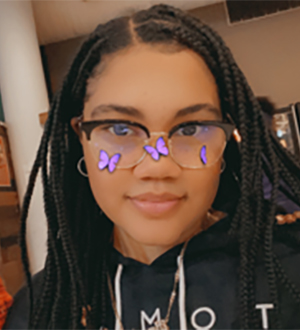Weekly Responses
Post your weekly responses here.
Topic: Mesopotamia
Due: Sun Sep 8
Prompt: What does the first tablet of Gilgamesh tell us about what it means to be civilized?
The document for this week is:
For your online response this week, write a post that includes the following:
- What passage or detail in particular jumped out at you as you read through this week’s primary source readings?
- What do you think the author was trying to communicate?
- What would you like to find out more about?
Responses for Week 2
Tablet 1
 Mark Wilson
244
Mark Wilson
244
2024-09-01 19:59:11
This kind of story may be new to a lot of you, and you may need to read through the tablet a time or two to get a sense of what’s going on. For this response, I want you to find a moment or scene that stands out to you, because it’s interesting or unexpected or because it gets you wondering.
Look for characters. Think about the individual people in the town and what they are experiencing. Find a moment and react to it with your own thoughts and ideas about what it tells us and what you want to know.
Response for Week 2
 Marielle Matingou
915
Marielle Matingou
915
2024-12-15 18:41:46
Gilgamesh, the protagonist, is introduced as a king who is two-thirds divine and one-third human. Although he is strong, wise, and powerful, he is also portrayed as a ruler who is oppressive and does not fully live up to the expectations of good leadership. His arrogance and abuse of power are evident as he oppresses the people of Uruk by taking advantage of his status, particularly through forced labor and abusing his rights over women. This behavior highlights that leadership in a civilization carries a responsibility to serve the people, and true kingship requires wisdom, justice, and respect for the rights of others.
What this tells us about civilization:
Civilization, in this context, involves the establishment of social order and the need for responsible, moral leadership. A true leader must balance power with the wellbeing of the citizens.
The first tablet also introduces Uruk—an advanced city of the time. The walls of Uruk are described as impressive and symbolic of the civilization's ac plishments. Uruk is depicted as a place nere people live
Tablet I - The Epic Of Gilgamesh
 Ivania Posada Coreas
327
Ivania Posada Coreas
327
2024-09-12 15:47:02
According to Table I, it has a good and enjoyable reading. At the beginning of the reading, I found it hard to understand what was happening. But I took my time to reread it and understand it. Each character is described in a good position where we can understand. Also, the mention of the creation of Enkidu was a good part of the reading; the description of it is clear and understandable when he says, " Enkidu to her, to her harlot."/Come, Shamhat, take me long sacred, Shamhat, holy home of the Anu and Ishtar, where Gilgamesh is perfect in strength like a wild bull loiding it over the menfolk." something interesting was
[ but Gilgamesh] lest no [ daughter go accessible to her mother ] ( pg 4-175 ).
Gilgamesh lets no go girl free to her bridge [ groom ] ( pg 4-190).
According to this, I can see Gilgamesh's abuse of power in the passage.
According to Tablet I, I think the author was trying to communicate with the reader about Gilgamesh's power that his has and the abuse that he is doing on Tablet I, the author is primarily trying to introduce the character of Gilgamesh, highlighting the immense power that is playing in his character—also, the creation of his Enkidu.
I want to keep finding and understanding each role that each character is playing in the reading.
week 2
 [Former classmate]
322
[Former classmate]
322
2024-09-10 16:23:59
The passage I would like to focus on is Gilgamesh's physical attributes and his acting as a tyrant towards his people of Uruk. According to the reading, Gilgamesh provides, "The one who saw the abyss I will make known to the land. Of him who knew all, let me tell the whole story... He built the walls of Uruk." He's a tyrant ruler who wants to control his people's future. Particularly toward the young men and women of Uruk and using his strength to oppress his people, including his friendship with Enkidu, battles, and quest for immortality. However, the gods create Enkidu as a counterbalance, suggesting that true civilization requires strength, companionship, empathy, and the tempering of one's wilder impulses. I believe the author intended to communicate the significance of these themes in understanding the concept of civilization in ancient. Such as themes such as the role of leadership in society.The importance of laws and governance.The relationship between humans and gods.The significance of urban life and architecture.The value placed on knowledge and wisdom. I want to learn more about the historical and cultural context in which the Epic of Gilgamesh is written and how the text reflects the values and beliefs of ancient Mesopotamian Society. Furthermore, delving deeper into the symbolism and metaphors in the text could provide a better understanding of what it meant to be civilized in that period.
week 2
 Joselyne Bello Arellano
321
Joselyne Bello Arellano
321
2024-09-10 15:33:00
For your online response this week, write a post that includes the following:
- What passage or detail in particular jumped out at you as you read through this week’s primary source readings?
- What do you think the author was trying to communicate?
- What would you like to find out more about?
- What caught my eye in this reading is that Gilgamesh is not a real good leader/king of his people. In the way that we would sleep with all the bridesmaids of the men before their wedding. He was also a coward because he knows that mothers will cry and pray for these matters not to happen and he instead enables those acts.
- I think the author was trying to show us a not good leader with the acts that he would do that made him not a good king due to his actions and the way he would treat his people.
- If I keep reading I wanna know the backstory of what triggered this to happen. What happened in the beginning before or after that he became king to have this mindset that made him be a horrible person and a bad king.
Response
 Liam McNamara
320
Liam McNamara
320
2024-09-10 15:19:00
- What passage or detail in particular jumped out at you as you read through this week’s primary source readings?
When talking about the creation of Enkidu it says, “The Goddess Aruru, she washed her hands, took a pinch of clay, threw it down in the wild. In the wild she created Enkidu, the hero, offspring of silence, knit strong by Ninurta.”
- What do you think the author was trying to communicate?
I think the author is trying to communicate that Enkidu is seen as a creation of the gods. He is seen as a representation of nature as he is made up of different animalistic characteristics.
- What would you like to find out more about?
I would like to find more about how he interacts with the rest of the people as well as with important characters.
Response for Week 2
 [Former classmate]
317
[Former classmate]
317
2024-09-08 23:27:18
- What passage or detail in particular jumped out at you as you read through this week’s primary source readings?
What stood out the most to me was the way Gilgamesh abuses his powers as the mighty king. Lines 71-74 stated that Gilgamesh would sleep with the men’s bridesmaids before the wedding. He felt like it was his right as king. As their mothers pleaded to their gods for this tragedy.
- What do you think the author was trying to communicate?
I believe the author was trying to show us the personality of such an oppressor king. How arrogant one can become with such power.
- What would you like to find out more about?
I would like to know if there ever comes a time where someone comes into Gilgamesh’s life and changes the way he sees life, or changes the way he rules his city.
A Friend or An Enemy?
 Diomedes Sena
299
Diomedes Sena
299
2024-09-08 22:15:01
As I was reading Tablet I of this epic, the one detail that jumped out at me, came just after Enkidu’s encounter with the harlot. The animals, that were once friendly and familiar with Enkidu, now turn away at his presence. This was because of the sexual acts he preformed with the harlot. Acts that made him unpure and thus out of tune with nature.
By including this detail in Tablet I, I believe that the author wants to show us Enkidu's transformation from animal to man. The sexual acts, his first social encounter, made him a more civilized being as now he has no connection to animals. A metaphor that tells us that being less primitive makes you more civilized.
The one thing I would like to know more about is Enkidu's connection to the humans. How will he acclimate to society now that he can no longer live with animals? How does he feel about humans? I think this is important as it will set the tone for his interactions with the rest of the people in this story.
Response for Week 2you
 Abubakari Yatabare
309
Abubakari Yatabare
309
2024-09-08 21:48:00
- What passage or detail in particular jumped out at you as you read through this week’s primary source readings?
Throughout the entire reading, one thing that stood out to me was the repetition regarding Gilgamesh and how he was the shepherd to the sheep that are the people of Uruk. As well as the repetition of the term "Uruk the Sheepfold" throughout.
- What do you think the author was trying to communicate?
I think the author is trying to highlight how bad of a ruler Gilgamesh is. Usually, a Shepherd's job was to protect and ensure the safety and responsibility of his folk - his sheep. Gilgamesh is referred to as a shepherd but he isn't really doing what a shepherd supposed to do with their folk. He lies with newly wed brides, he attacks the sons of his kingdom whenever he wants, he just is a tyrannical ruler. He's their protector but they need to be protected from him which ties into them pleasing with the Gods and the Gods in turn fashioning Enkidu.
- What would you like to find out more about?
What does his mother mean by, "like a wife you'll love him.." Seems kinda loaded for two rivals.
Response for Week 2
 Amanda Isaac
302
Amanda Isaac
302
2024-09-08 20:53:36
- What passage or detail jumped out at you as you read this week’s primary source readings?
One detail in particular that jumped out to me is that Enkidu is created to be alongside animals, I wonder if this is foreshadowing into his personality for the future of this story, wild like an animal.
- What do you think the author was trying to communicate?
I believe that with Enkidu embodying a wild spirt, alongside the” wild” way that Gilgamesh rules the city of Uruk, that once the two finally connect like Gilgamesh's dreams have been revealing to him, that the city of Uruk is going to be is chaos and wild if the two actually to become friends like Gilgameshs mother predicts.
- What would you like to find out more about?
What I would like to find out more about is what were the gods exact intentions behind the creating of Enkidu. When the goddess Aruru created Enkindu he was referred to as the hero that shall “vie” for his spot so Uruk can rest, however a few pages later, Gilgamesh's mother warns him that once meeting Enkidu, he will love him like a wife which is a pretty significant amount of love to hold for some one. I am excited to read about the two of their meeting to see which prophecy for Enkidu will come true.
Response for Week 2
 Shafwan Ibn Majid
301
Shafwan Ibn Majid
301
2024-09-08 20:25:51
The passage or detail in particular jumped out at me as I read through this week’s primary source readings: Gilgamesh is a ruthless, awful King. This is when he pushes his people too hard at the beginning of the passage. For example “Gilgamesh lets no son go free to his father, by day and by night his tyranny grows harsher (Andrew 85 line)”. This shows Gilgamesh is a ruthless awful King because he pushed the young men hard to work. Example two, “Gilgamesh lets no daughter go free to her mother, The women voiced their troubles to the goddesses, they brought their complaint before them (Andrew 70 line)”. This shows Gilgamesh is a ruthless awful King because he doesn’t even let the young women go to their mother.
What does the first tablet of Gilgamesh tell us about what it means to be civilized?
 Thierno Bah
291
Thierno Bah
291
2024-09-08 17:45:47
I believe the detail that most struck me was the way Enkidu is completely altered after having erotic snuggles with Shamhat. More specifically, the passage where Enkidu, having spent seven days in bed with Shamhat looks at is herd and the herd of animals now are running away from him. This passage represents the complete suppression of the quintessential life of an animal born out of raw instincts into the realm of the human self and its awareness. The fact that he 'could not run as before’ depicts that having interacted with Shamhat, this primal aspect within him is gone. The reason being is because rather he has declination of ‘reason’ and ‘understanding’ in return. It sums up very well the opposition between nature and civilization in the epic, and the price which emerges with the increasing humanness. This excerpt also initiates the complicated links between Enkidu and Gilgamesh and the shared arc that they will undertake especially concerning death and understanding.
The author weaves the conflict of nature and civilization in the humans through the character of Enkidu’s metamorphosis. Enkidu goes back to the evolution process with a woman called Shamhat. He loses his natural ways and power which were untouched by humanity but acquires knowledge and understanding. This passage embodies the duality of human living, offering society with education, companionships and emotions means abandoning individualism and primitive nature to make room for civilization. The narrative postulates how all humanity is bound to disease to become completely human. This is because to action there is an emotional element and to thoughts an underlying biological animalistic core.
I would find studying the adaptation of cultural or historical contexts to be worth my time. For example, in what ways do new works of literature, movies and other media adapt the themes of the epic into a contemporary setting? In addition, knowing more about the political environment and culture in which the epic was produced will also make it possible for a person to relate insights generated in the epic more effectively. What are today’s scholars’ ideas on leadership and friendship and death in the epic, compared to ancient ones as well?
Response for Week 2
 Gabriel Sarfo Arful
290
Gabriel Sarfo Arful
290
2024-09-08 16:56:06
- What passage or detail in particular jumped out at you as you read through this week’s primary source readings?
In my opinion, Enkidu is portrayed as a wild man cultivated by animals and living in peace with nature, which contrasts significantly with Gilgamesh's oppressive attitude as King of Uruk. The symbolic consideration of Enkidu's basic nature, going through the grassland and protecting animals against human hunters, emphasizes his innocence and purity. What remains true out is how Enkidu represents fresh, natural might, whereas Gilgamesh represents a more advanced, but perverted type of power. This generates an intense dynamic between the two, anticipating their ultimate relationship and mutual growth.
- What do you think the author was trying to communicate?
I believe the author is trying to communicate that Gilgamesh's oppressive behavior and the misery that he is causing the people of Uruk will be abolished when Enkidu comes and prevents Gilgamesh from his rulings as he is the one that the people of Uruk have prayed for, and he is believed to be the strongest of all.
- What would you like to find out more about?
I would like to find out more about Gilgamesh's relationship with his parents, as well as each of their obligations. What motivated Gilgamesh to carry out such awful acts as a leader? I'd also like to know how Gilgamesh and Enkidu's relationship unfolds.
Response for reading of Epic of Gilgamesh Tablet 1
 Amanda Guzman
289
Amanda Guzman
289
2024-09-08 16:43:45
1.The passage that stuck out to me the most was when Gilgamesh was speaking to his mother about his dreams, to me that showed me that Gilgamesh sees his mother as someone that can be trusted and that is wise because he felt that he could confide in her about his dreams. That also made me question whether he respects women or solely respects his mother because if he did respect women he wouldn’t be sleeping with them before their grooms and justifying it because he is the king.
2. I think the author was trying to help us as readers to really paint a picture of what is currently occurring in the epic of Gilgamesh, the text felt very descriptive in certain aspects especially when the characters of Enkidu and Gilgamesh were being described. Also different emotions were being portrayed especially about Enkidu’s character, Enkidu was described as having turned pale from anger and with that wording it really helps me picture how upset Enkidu was for him to have a physical reaction.
3. I would like to learn more about Enkidu and his upbringing besides knowing about him being born and raised in the wild. I would like to know more about his morals and values and how they conflict or align with Gilgamesh and his upbringing along with his morals and values.
Week 2 Response, Epic of Gilgamesh, Tablet 1
 Collin Underhill
288
Collin Underhill
288
2024-09-08 16:08:47
1.) The passages that stood out to me the most were the ones that were repeated word for word. For example, when in Gilgamesh's dream his mother, Ninsun, tells him about Enkidu she says, "mightiest in the land, strength he possesses, his strength is as mighty as a rock from the sky. Like a wife you'll love him, caress and embrace him." After a second dream, Gilgamesh tells his mother and she tells him, "My son, the axe you saw is a friend, like a wife you'll love him, caress and embrace him... mightiest in the land, strength he possesses, his strength is as mighty as a rock from the sky." There are other instances of this through out tablet 1.
2.) Due to the repetition, I think the author is trying to communicate the importance of what he is saying. Because they are repeated word for word, I think they are to be taken literally, Enkidu really is the mightiest in the land and his strength is literally as mighty as a rock from the sky,
3.) I would like to learn more about Gilgamesh's parents influence on his life and about his life as a child.
Week 2 Response - Tablet 1 - Epic of Gilgámesh
 Emily M Ulloa
279
Emily M Ulloa
279
2024-09-08 00:11:51
- What passage or detail in particular jumped out at you as you read through this week’s primary source readings?
In my opinion, I found many parts interesting but the one part that stood out to me the most was “Gilgamesh lets no son go free to his father. Let’s no daughter go free to her mother” what does that mean? Why does he keep the kids hostage? Are there noticing or realizing that Gilgamesh is keeping them?
- What do you think the author was trying to communicate?
I think the author is sharing a deep telling description of a powerful legend (Gilgamesh) that also has his flaws and is not perfect. As I was reading how Gilgamesh was sacrificing his warriors whenever he felt like fighting, rapes his noble wives, takes whatever he wants from his peoples and walk all over them shows how also he wasn’t much of a legend in that sense. It is important that in situations like this there is always a resolution (enkidu) and also have self awareness and consequences of wrong doings so bad intentions won’t keep occurring.
- What would you like to find out more about?
I would like to find out more about the relationship between Gilgamesh and his parents, as well as each of their roles. What made Gilgamesh do all the horrible things he did as a leader? Also I would like to know how the relationship that Gilgamesh and Enkidu continues about.
Epic of Gilgamesh - Week 2
 Benjamin Yang
278
Benjamin Yang
278
2024-09-07 22:24:44
The detail of the passage that stuck out to me most was that Aruru created Enkidu as a rival to Gilgamesh rather than killing our ending Gilgamesh outright. This implies that there is a significance of rivalry or possibly trial by merit to the Mesoamerican people. The Epic of Gilgamesh starts not with the disdain of the gods or even the desecration of a god-king. Instead, it is the divine act of introducing an equally oppressing and powerful rival figure into the world that kicks off this journey. Aruru does not smite Gilgamesh out of disgust for his breakdown of Mesoamerican society, but instead creates a being capable of matching him. She intends to create a roadblock for Gilgamesh that (presumably) teaches him the error of his ways as a rampant tyrant that follows only his every whim.
I believe the author was trying to convey in Tablet 1 that being unmatched in absolutely everything you do can only lead to an untamed and wild soul, no matter how distinguished or kingly you may be. Enkidu serves to be an antithesis to Gilgamesh in the sense that their roots are different (Gilgamesh being a prodigy of gods and ruling unrightfully as king versus Enkidu being born of clay and living in the wild). Despite the substance of their existences being different, their quality of potential is the same, which allows these two characters to come together in a juxtaposition of a god unknowingly of his responsibilities and a savage that's destined to usurp said king.
I would like to find out more about the relationship between the people of Uruk, their leaders, and the deities that they worship. Judging from the actions of Aruru, perhaps the Uruk people cherished this story so much because it was a rare situation of gods making an example out of humanity rather than threatening to erase them outright, On top of this, it is interesting to me that praying to the gods is the last resort to take to when the kingdom is being ran over by a ruler who knows no boundaries. The lack of inherent faith in their own gods leads me to believe that Uruk people have experienced or feel as if they have been slighted by the gods before, or maybe they believed that the gods were not so quick to provide reasonable judgment. Another point to mention is that Enkidu was created in the image of Anu, the god of gods in the Mesoamerian pantheon. It is interesting to me that narratively, an image of Anu is the one to rival Gilgamesh, son of Ninsun. A representative of the gods, given life through clay, is the hero that cuts down the horrifying reign of a demigod drunk with his own power. This conflict symbolizes Enkidu as a mere extension of the gods and is therefore a testament to how even the greatest of kings cannot stand up to even a glorified mud doll of a real god.
Week 2 Response - Tablet 1 - Epic of Gilgámesh
 Abigail Pokua Amankwatia
277
Abigail Pokua Amankwatia
277
2024-09-07 21:58:15
What passage or detail in particular jumped out at you as you read through this week’s primary source readings?
The passage that struck out to me as we delve into the first Tablet of Gilgámesh, was the factor of his dreams. I brought it up to the professor that I noticed a lot of repetitive words or sentences, to which I thought that having such a notion was meant to convey the importance of what is to come into Gilgamesh’s life and the acts of his rulings. As the passage had stated “The stars of heaven [appeared] above you, [like a] rock from the sky one fell down before you. You lifted it up, but it weighed too much for you, you tried to roll it, but could not dislodge it.” As Gilgamesh tries to decipher what his dream could be, he goes to his mother to which she provides him that revelation over and over until it sinks in that something new may come over and provide an impact to him.
What do you think the author was trying to communicate?
I believe the author was trying to state that change or adaptation is definitely something that Gilgamesh has to focus on for the sake of himself and for the sake of the city of Uruk. He is the one to will all, and if in this dream - the one that will come and be his friend and his savior, he should truly take the time to know this visitor once he arrives and sees his given intentions.
Yet, I feel like the author could also play devil's advocate, for Enkidu could come and also deter Gilgamesh from his rulings, he is the one that the subjects of Uruk have prayed for and he is the one to be the mightiest as they say. There can definitely be a play with man and his morals, the different upbringings and the exploration of two different aspects of a mindset coming together for the sake of themselves, the city and the people.
What would you like to find out more about?
I would love to read more on the Gods aspect in all of to come, they created a friend for Gilgamesh in a sense. Do they think that everything will go well in their favor and the favor of the citizens that has asked for their help? Or will everything still be placed in the palm of Gilgámesh? How will Enkidu consider to be a friend to the king himself? Will Gilgámesh be friendly from the go or will he be a little hesitant to this new comer despite him having a dream of his arrival and the greatness to come?
Tablet 1: the coming of Enkidu
 Rachid Cherif
275
Rachid Cherif
275
2024-09-07 21:09:59
In my opinion one of the most striking passages is the creation of Enkidu and his transformation through his encounter with Shamhat. This moment, where Enkidu moves from a wild, animal-like existence to a more humanized state after his interaction with the prostitute, stands out for its symbolic weight. The idea that sexual intimacy and contact with civilization could fundamentally alter a person's nature seems significant. Enkidu is no longer part of the natural world; he becomes aware, gains wisdom, and is set on a path toward his eventual encounter with Gilgamesh.
I think that the author seems to be exploring themes of transformation, civilization vs. nature, and the loss of innocence. Enkidu’s shift from wildness to humanity parallels a larger narrative about the taming of nature and the growth of cities like Uruk. The epic shows a tension between the untamed forces of nature, represented by Enkidu, and the order of civilization embodied by Gilgamesh. Through their eventual friendship, the epic may suggest a reconciliation of these forces.
I’m curious to explore more about how the relationship between Enkidu and Gilgamesh evolves and what their bond signifies within the broader themes of the epic. Additionally, the role of dreams in foreshadowing their friendship, as well as the intervention of the gods in human affairs, raises questions about fate, divine will, and human agency. What do these dreams tell us about the nature of the friendship that is to come?
Epic of Gilgamesh - Tablet 1
 Zacharie Boutoille
273
Zacharie Boutoille
273
2024-09-07 18:29:56
I find the introduction to be the most peculiar aspect of the story so far. The description of the tyranny of King Gilgamesh over the city of Uruk and the author’s seeming admiration over what may have been a “once-great” king. The Tablet begins by describing the Deluge that wiped out Mesopotamia and in the wake of such a disaster, it was a powerful king that rebuilt the region. The author suggests Gilgamesh “opened passes in the mountains” and “dug wells on the slopes”. The author suggests no other king could accomplish what Gilgamesh could accomplish and seems to be in wonder about the final product which is the City of Uruk. Even going so far as to say Gilgamesh “set in place for the people the rites of the Cosmos.” He embarks on quite a vivid description of Gilgamesh’s stature and prowess. Yet, the admiration quickly falters as he then details the terrible oppression the people of Uruk now face. Not only abusing his people's bodies and souls but abdicating his responsibilities to them as a leader. He offers the city no new way forward and instead treats them as his circus, his coliseum, and his bordello. There is now a picture of a once-great leader who fell to the temptations of his ego. Or perhaps is under the influence of another unidentified force. Gilgamesh put his people in such a grave situation that now their only hope is to appeal to the gods above to deliver them from this evil.
There is, however, no explanation of how this situation came to be. Just a colorful explanation of what this situation currently is. I would like to know why Gilgamesh no longer feels the need to lead his people. Did his ego grow out of control? Did he always have the propensity for narcissism? Did he fall mentally ill? Or is acting out of spite after being wronged? Perhaps possessed by a greater evil?
2 week response
 [Former classmate]
271
[Former classmate]
271
2024-09-07 12:45:13
What passage or detail in particular jumped out at you as you read through this week’s primary source readings?
In my opinion Enkidu is described as a wild man, raised by animals and living in harmony with nature, which contrasts sharply with Gilgamesh's tyrannical behavior as king of Uruk. The vivid description of Enkidu's primal nature, roaming the steppe and protecting animals from human hunters, emphasizes his innocence and purity.
What stands out is how Enkidu represents an untouched, natural strength, while Gilgamesh symbolizes a more civilized, yet corrupted form of power. This sets up a powerful dynamic between the two, foreshadowing their eventual friendship and mutual transformation.
What do you think the author was trying to communicate?
Enkidu seems to communicate themes of balance, transformation, and the tension between civilization and nature. The author presents Gilgamesh as a powerful but tyrannical king, unchecked by any equal force. Enkidu, born from the wilderness, is created by the gods to counterbalance Gilgamesh's excessive power and arrogance. The author is likely emphasizing the need for balance in life-between civilization and the wild, strength and humility, power and compassion. Enkidu's initial connection with nature contrasts with Gilgamesh's rule over a city, suggesting that neither pure civilization nor pure wilderness is ideal. It is only through their eventual friendship that both Gilgamesh and Enkidu learn and grow, illustrating how human development often requires connection and opposition to grow into something greater.
What would you like to find out more about?
o The symbolic significance of Enkidu's transition from nature to civilization. What does this shift suggest about the ancient Mesopotamian view of human progress, or the costs of leaving a more
"natural" state behind?
o How the relationship between Enkidu and the animals he protects prior to meeting Shamhat reflects the Mesopotamian
worldview. Did the author intend Enkidu to represent a kind of ideal purity or innocence lost through contact with society?
o The role of the gods in orchestrating the creation of Enkidu and the significance of divine intervention in the affairs of mortals. What does this say about the relationship between humans and the divine in ancient Mesopotamian culture?
Response for Week 2
 Khadim Gueye
267
Khadim Gueye
267
2024-09-07 05:27:27
What passage or detail in particular jumped out at you as you read through this week’s primary source readings?
"He was innocent of mankind; he knew nothing of the cultivated land."This passage illustrates Enkidu as a figure who embodies raw nature, a counterpart to Gilgamesh's civilized strength. The detail that he “knew nothing of the cultivated land” contrasts his wild, untamed origins with the structured, urban life of Gilgamesh in Uruk.
What the author may have been communicating:
The creation of Enkidu seems to represent the natural world as pure, uncorrupted, and even innocent, while humanity (and particularly Gilgamesh) is portrayed as sophisticated but possibly arrogant and distant from nature. The author might be expressing the tension between civilization and the natural world, hinting at the need for balance between the two. Enkidu's later transformation, from living with animals to becoming more human through his encounter with Shamhat, might symbolize the inevitable blending of these two worlds and the consequences of leaving behind one's natural state.
What I'd like to find out more about:
I’m curious about the broader theme of friendship in the epic, particularly how the relationship between Gilgamesh and Enkidu grows and what it reveals about ancient views on camaraderie and the meaning of life. Also, I'd like to explore the symbolism behind Enkidu’s wild origins and eventual civilization, how does that transformation reflect Mesopotamian values or religious beliefs?
Week 2 Response
 Siwani Gurung
264
Siwani Gurung
264
2024-09-06 15:41:09
In my opinion, the most interesting part of the passage was the actual creation of Endiku, from prayer to fruition. The women’s supplication to the Gods shows their reliance on the deities to deal with the powerful force of Gilgamesh, as his strength greatly overpowers every mortal. Moreover, they chose to voice their concerns to the goddesses, which implies the importance of females for the future of the community. The beautiful image of a man born of clay feeds into his initial primal characteristics, which separate him from civilized human society. This is also reflected in his appearance, especially his ‘body matted with hair’.
I believe that the author’s intentions were to display the complex emotions of man. The fact that his realization of humanity through a week of fornication with Shahmat is fascinating; to me, it implies a great significance in sexual relations. Although sex is not exclusive to humans, the feeling of lust experienced by Endiku because of Shahmat’s beauty is important to show the difference between simple animalistic procreation, versus what transforms Endiku from beast to man.
I would like to learn more about what Shahmat’s role as temple harlot was, as my preconception was that sex and sacred places were not to be as closely related as they are in this story.
Tablet 1
 Albert Romero
262
Albert Romero
262
2024-09-05 23:31:49
- What passage or detail in particular jumped out at you as you read through this week’s primary source readings?
I think the part that stuck with me the most was how the Gods tried to resolve Gilgamesh tyranny. I'm fascinated how the Gods response of his tyranny was to send him a friend. You would think it would be something more straightforward like stopping him from waring with the young men, and sleeping with the young women. But instead they sent a friend of his strength and valor that Gilgamesh can respect, and be persuaded and influenced by Enkidu's ways. Where Enkidu would come with the purpose to fill in the holes Gilgamesh dug, or picking up the snares Gilgamesh had placed, and also set free the beasts in his grasps. Hopefully Gilgamesh does have a soft spot for a friend and may he listen to him.
- What do you think the author was trying to communicate?
What i think the author was trying to communicate is that people may obey more if they are swayed by a positive emotion. Its beautiful how they sent him a friend that will help Gilgamesh with his ruling of Uruk. I also think Enkidu's birthplace was necessary. He needed to live out the life with the beasts to appreciate the less meek animals. Living a life without the pursuit and selfish ambitions of a human. He learned to value the beauty of nature and other aspects of life, not just living for the fulfillment of his own gains and values.
- What would you like to find out more about?
I would love to learn more about the purpose of Gilgamesh, what was the purpose of the Gods to create him. Was he made to rule kindly, or is his persona now or how the Gods wanted or expected him to be.
Week 2 Response
 Zuleyaime LaGuerre
261
Zuleyaime LaGuerre
261
2024-09-05 16:16:53
1.What passage or detail in particular jumped out at you as you read through this week’s primary source readings?
This passage in particular interested me the most to me the most, “It is he who is shepherd of Uruk-the-Sheepfold,
[but Gilgamesh] lets no [daughter go free to her] mother.
[The women voiced] their [troubles to the goddesses,
[they brought their] complaint before [them:]
It is he who is shepherd of Uruk-the-Sheepfold,
[but Gilgamesh] lets no [daughter go free to her] mother.
[The women voiced] their [troubles to the goddesses,]
[they brought their] complaint before [them:]”
2.What do you think the author was trying to communicate?
I believe that the author in this passage is trying to convey how contradictory Gilgamesh’s role is in the passage due to his abuse of power. In the passage, his role is compared to a shepherd which a seen as a caretaker role but Gilgamesh seems to instead be doing the opposite and is abusing his power when states that doesn’t allow daughters to go back to their mothers and further into the article to seems that this happens to other citizens such as sons and fathers as well as husbands and wives.
3.What would you like to find out more about?
I would like to see how he became this way since he is compared to a shepherd, it seems his previous intentions or even current intentions is to be a caretaker but I am curious on what led him to his tyrannical philosophy.
What does the first tablet of Gilgamesh tell us about what it means to be civilized?
 Iryna Tomarova
260
Iryna Tomarova
260
2024-09-04 22:44:39
The first thing I want to mention is that I didn't expect the text to be so interesting. The characters are described so well, and it's easy to imagine the events, even though people who lived thousands of years ago probably imagined them very differently.
I really enjoyed reading the part where the creation of Enkidu is mentioned. Aruru used a pinch of clay, which reminded me of a Native American legend about Coyote, who also created a human from clay. (It was one of my favorite stories when I was a child.) Enkidu was coated in hair like a god of animals, and the animals accepted him as their equal.
To better reveal the theme of civility, we need to see Enkidu among other people first (in the city). However, we can still draw some conclusions. In the wild, the only things that concerned Enkidu were food, water, and survival (his own or that of the animals). In contrast, Shamhat offered him the ability to communicate, a sense of purpose, a home, and connections.
When discussing civility in general, the author mentioned all the signs of civilization in the first part of the text. The city of Uruk has a ruler (order), architecture (which he describes in detail), a writing system and how books looked, hunting tools and traps, weapons, and religion.
There were parts of the text I didn't understand. What did the author mean when he wrote that Gilgamesh didn't let young people return to their families? Did he arrest or kill them? If so, why only the young ones? If he used them as workers, why did he take young girls as well? Why did people think about him like about a tyrant and on other hand, they spoke well of him (like Shamhat when she described him to Enkidu)?
Why did Aruru send Enkidu into the wild instead of directly to Gilgamesh? Enkidu didn't even develop as a personality among the animals.
How did Enkidu let the animals go so easily when they were like his family?
Overall, even though I didn't fully understand some parts of the plot or vocabulary, I still got a complete picture of the described world and characters, and learned something new about Sumerian civilization.